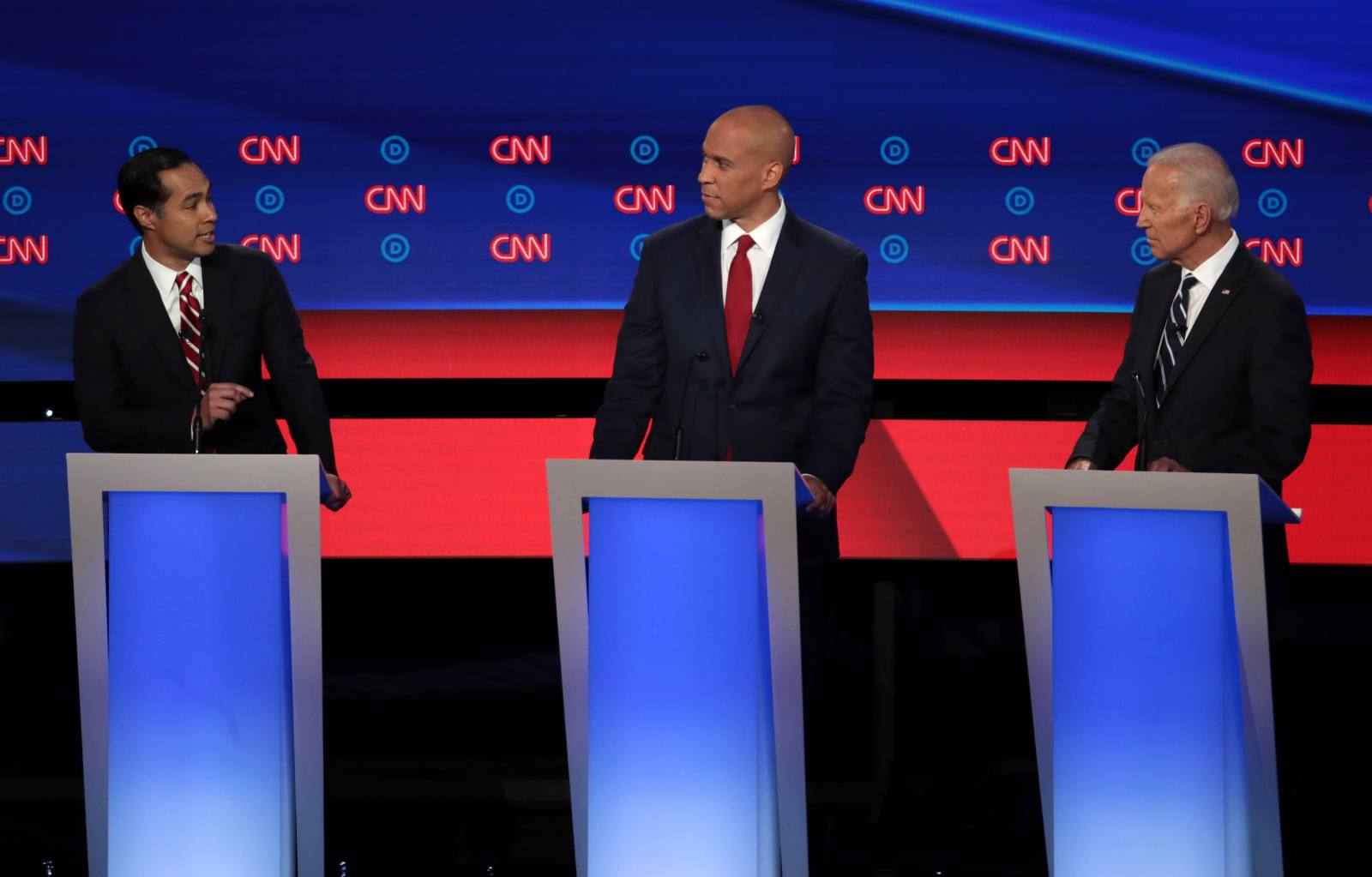The Democratic National Committee (DNC) is still dealing with the ongoing situation regarding the possible cancellation of Thursday’s debate. To add to the list of problems, as we briefly mentioned on Sunday, all the major candidates are now asking the DNC to expand the field once again and discard the tightening threshold of polls and donors needed to join the debate stage. The movement started with Sen. Cory Booker, who did not make the cut for December, and has now snowballed into a letter which eight other candidates have signed on to.
The letter, which calls on the DNC to scrap the participation rules it enacted for the December debate, calls the qualifications “unnecessary” and “artificial” in terms of winnowing the field before voters get a chance to have their say:
In the letter, the candidates note “the escalating thresholds over the past few months have unnecessarily and artificially narrowed what started as the strongest and most diverse Democratic field in history before voters have had a chance to be heard” and that “many of the candidates excluded due to these thresholds are the ones who have helped make this year’s primary field historically diverse.”
While not specifying what threshold should be used for entry into the January and February debates, the letter asked the DNC to return to “the previous criteria that allowed candidates to qualify to participate either via meeting a minimum polling threshold or meeting a number of grassroots donors to demonstrate broad-based support.”
If the DNC went along with the request and reverted the rules back to the “either/or” requirement of polls or donors, the debate stage could expand greatly. It hasn’t been hard for candidates to use social media, and sometimes get support from other candidates, to build up the needed number of donors to cross the threshold. The polling requirements have been the thing which tends to cause the hangup for candidates stuck in the one-percent club.
Entrepreneur Andrew Yang will be the only person of color on the debate stage and has voiced his support of Booker’s efforts to persuade the DNC to change its rules.
“Well, many Americans are looking up at the debate stage and are concerned that the candidates don’t represent their interests, their perspective, their point of view, and we’re about to have voting started here in Iowa on February 3rd. To me, having a more inclusive debate is a positive thing,” Yang said. “You know, Cory sent me a text message, I’m friends with Cory. If a friend of mine asked me to do something and I think it’s positive, of course I’ll do it.”
The course of the primary has already presented its share of chaos and cliffhangers, as political primaries always do. If the DNC were to decide now, arbitrarily, that their own rules are hurting the process, the resulting chaos would send the race into uncharted territory. The debate stage in December is set to feature seven candidates if the debate even happens at all.
If the debate stage expands back to ten or more candidates, it would be likely that TV networks decide they will just cram eleven or twelve, or maybe thirteen, candidates onto a single night. Splitting the field and providing two nights of coverage will result in one of the nights have fewer viewers depending on the candidate split and eat precious broadcast time that networks aren’t always eager to give up. There is no good answer to this problem since a smaller number of candidates on stage provides a better viewing experience, but some voters also want to give each candidate a voice.
The bottom line here is that every cycle is ripe for criticism of some kind. The DNC needed a way to begin narrowing the field, so judging by poll numbers, which are supposed to be objective measurements, and including national and early-state polls, seemed like a reasonable way to measure how a candidate is doing. On the other hand, polls are fickle and can be inaccurate. As a hedge against that, the DNC provided a long list of pollsters which it deems as acceptable sources. Some candidates, like Hawaii Rep. Tulsi Gabbard, have argued that the list of acceptable polls itself is unfair since the DNC has decided that certain polling organizations, for arbitrary reasons, won’t be accepted for qualification.
This debate week is turning into a mess for the DNC.
Donate Now to Support Election Central
- Help defend independent journalism
- Directly support this website and our efforts
